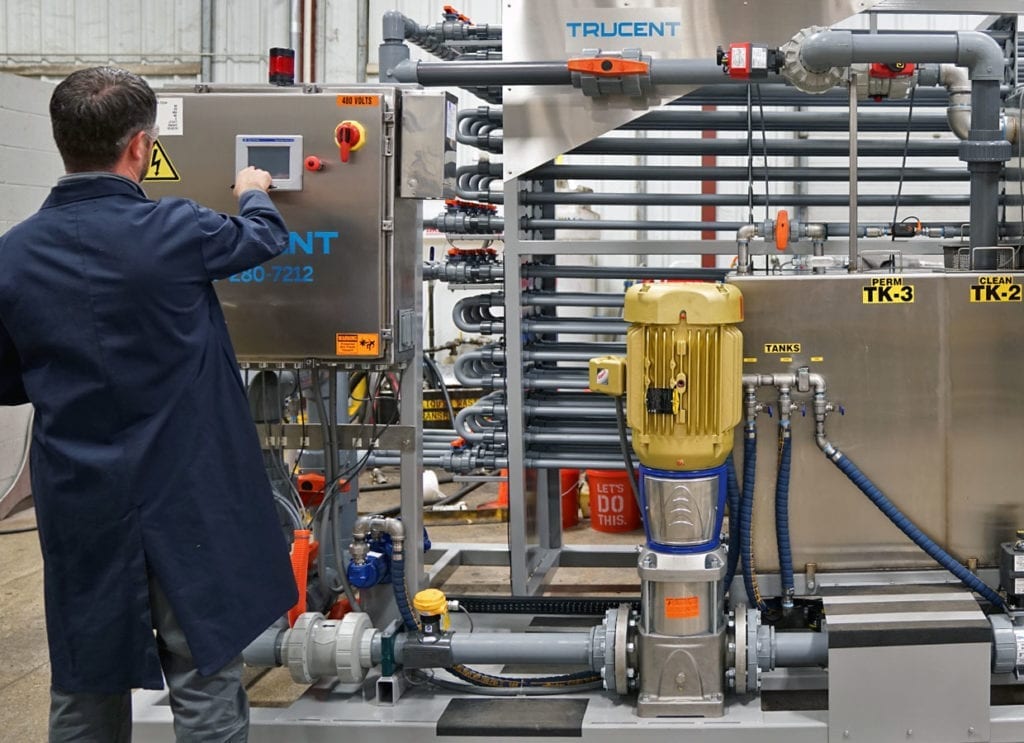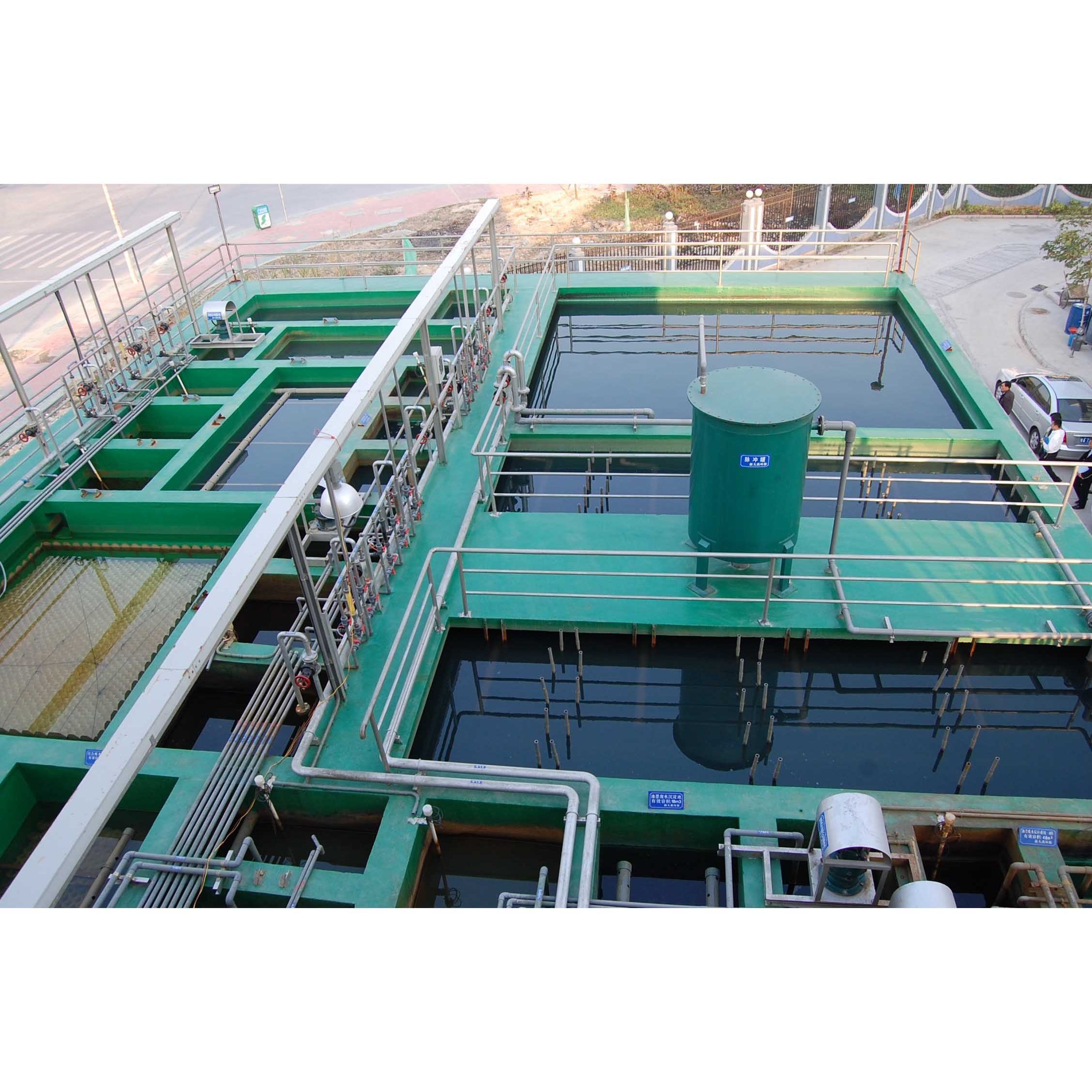Industrial Waste Water Treatment-- Safeguard the Atmosphere with Professional Water Treatment Solutions
Industrial Waste Water Treatment-- Safeguard the Atmosphere with Professional Water Treatment Solutions
Blog Article
The Function of Industrial Waste Water Treatment in Environmental Protection
The effective treatment of commercial wastewater is significantly identified as a keystone of environmental management, offering to alleviate the damaging effects of toxins on marine ecological communities. As sectors progress and broaden, the demand for robust wastewater management remedies comes to be paramount to make certain compliance with ecological laws and advertise sustainable practices. This demands a more detailed exam of the treatment refines utilized and their implications for both ecological health and wellness and resource recuperation. Comprehending these characteristics increases crucial questions regarding the balance in between industrial development and ecological honesty, prompting more exploration of the courses forward.
Value of Drainage Treatment
The significance of wastewater therapy can not be overemphasized, as it plays an important duty in shielding public health and the atmosphere (Industrial Waste Water Treatment). Reliable wastewater therapy systems are essential for eliminating impurities from commercial discharge, consequently stopping dangerous compounds from going into all-natural water bodies. This procedure lessens the threat of waterborne conditions, which can arise from untreated wastewater, and safeguards community health
Furthermore, treated wastewater can be safely reused in different applications, such as irrigation and industrial processes, advertising lasting water administration techniques. By reusing water, sectors can dramatically minimize their freshwater consumption, adding to source conservation.
In addition to health and wellness advantages, wastewater treatment is important for preserving aquatic ecological communities. Pollutants in neglected wastewater can cause the destruction of water quality, harming water life and interrupting eco-friendly equilibriums. By dealing with wastewater prior to discharge, industries help maintain the stability of regional ecological communities and advertise biodiversity.
Furthermore, regulatory compliance is an essential element of wastewater administration. Complying with well established ecological requirements not just prevents legal consequences however likewise improves a company's credibility as a responsible corporate citizen. Basically, effective wastewater therapy is indispensable for safeguarding public wellness, shielding the setting, and advertising sustainable industrial practices.

Sources of Hazardous Waste Water
Industrial wastewater originates from a range of resources, each adding to the complexity of therapy processes. Mainly, these resources consist of making facilities, refineries, and processing plants, which create effluents as a result of their operations. Industries such as textiles, pharmaceuticals, food and beverage, and petrochemicals create substantial quantities of wastewater, frequently filled with impurities consisting of hefty steels, organic compounds, and nutrients.
In enhancement to production, farming tasks add to commercial wastewater through runoff and effluent from livestock operations and crop processing. The meat and dairy markets, in specific, are recognized for launching high degrees of biochemical oxygen need (BODY) and virus.
In addition, mining and mineral handling tasks generate wastewater having put on hold solids and unsafe chemicals. Power generation plants, specifically those making use of nonrenewable fuel sources, additionally add wastewater with cooling systems and chemical cleaning processes.
Each of these sources offers one-of-a-kind obstacles regarding the make-up and quantity of wastewater produced, requiring tailored treatment remedies to minimize their ecological effect. Comprehending the diverse beginnings of commercial wastewater is vital for establishing effective management approaches intended at safeguarding water resources and advertising lasting industrial practices.
Therapy Processes and Technologies
Effective therapy processes and technologies are vital for handling industrial wastewater and minimizing its environmental impact. Numerous techniques are employed to get rid of pollutants, adapt to various wastewater qualities, and abide by regulative standards.
Physical therapy procedures, such as sedimentation and purification, assist in the removal of put on hold solids. These techniques are often made use of as preliminary actions to reduce the tons on subsequent treatment phases. Chemical treatment, consisting of coagulation, neutralization, and flocculation, addresses liquified pollutants by changing their chemical residential properties, making them simpler to separate from water.
Organic treatment modern technologies, such as triggered sludge systems and biofilters, use microorganisms to weaken raw material and nutrients. These methods are particularly reliable for biodegradable waste streams, promoting the all-natural decomposition process. Advanced therapy modern technologies, such as membrane filtering and progressed oxidation procedures, deal enhanced removal performances for challenging contaminants, consisting of hefty steels and persistent organic compounds.
Each of these treatment procedures can be set up in numerous mixes to develop tailored solutions that satisfy certain commercial needs. The selection of modern technology depends on factors such as the type of wastewater, preferred treatment results, and financial factors to consider, making sure that sectors can run sustainably while decreasing their eco-friendly impact.
Ecological Advantages
Applying durable wastewater therapy refines not only makes sure compliance with regulative standards but also yields significant ecological advantages. Reliable therapy of industrial wastewater decreases the discharge of damaging contaminants into natural water bodies, thereby protecting aquatic environments. By removing poisonous materials, heavy metals, and virus, these procedures assist maintain biodiversity and advertise much healthier communities.
Additionally, dealt with wastewater can be repurposed for different applications, including watering and commercial processes, minimizing the need for fresh water sources. This reuse not just conserves water but likewise minimizes the stress on neighborhood water products, which is especially you could check here vital in water-scarce regions.
Moreover, reliable wastewater therapy reduces the risk of dirt and groundwater contamination, guaranteeing the integrity of regional environments. Industrial Waste Water Check Out Your URL Treatment. By preventing the seepage of unsafe compounds, sectors add to the general wellness of bordering neighborhoods and communities, enhancing public trust fund and cultivating lasting industrial methods
Regulatory Structure and Compliance
A detailed governing structure controls the therapy of commercial wastewater, making certain that markets comply with stringent conformity requirements. Numerous nationwide and neighborhood guidelines, such as the Clean Water Act in the USA, stated limits on the discharge of pollutants into water bodies. These regulations are made to safeguard marine environments and public health by mandating that industries execute proper therapy modern technologies.
Compliance with these laws usually entails getting authorizations, conducting routine monitoring, and reporting discharge levels to regulatory authorities. Failing to abide can lead to significant fines, consisting of fines and functional constraints, therefore incentivizing industries to adopt finest methods in wastewater monitoring.
In enhancement to governmental regulations, several sectors also comply with volunteer requirements and accreditations, such as ISO 14001, which advertise sustainable ecological monitoring practices. Stakeholders are increasingly supporting for boosted transparency and liability in wastewater administration, pushing for more stringent enforcement and more rigorous reporting needs.
Eventually, a robust regulative framework not just serves to reduce environmental risks however additionally promotes a culture of sustainability within the commercial field, urging continual renovation in wastewater treatment procedures.
Conclusion

The efficient treatment of industrial wastewater is significantly identified as a keystone of ecological security, serving to minimize the harmful impacts of pollutants on water ecosystems. Efficient wastewater treatment systems are necessary for eliminating impurities from industrial discharge, thus preventing hazardous substances from entering all-natural water bodies.Industrial wastewater stems from a variety of resources, each adding to the complexity of treatment processes. Efficient treatment of my link commercial wastewater decreases the discharge of dangerous pollutants into natural water bodies, thereby safeguarding marine communities.In final thought, industrial wastewater treatment is crucial for securing environmental stability and promoting sustainable water management.
Report this page